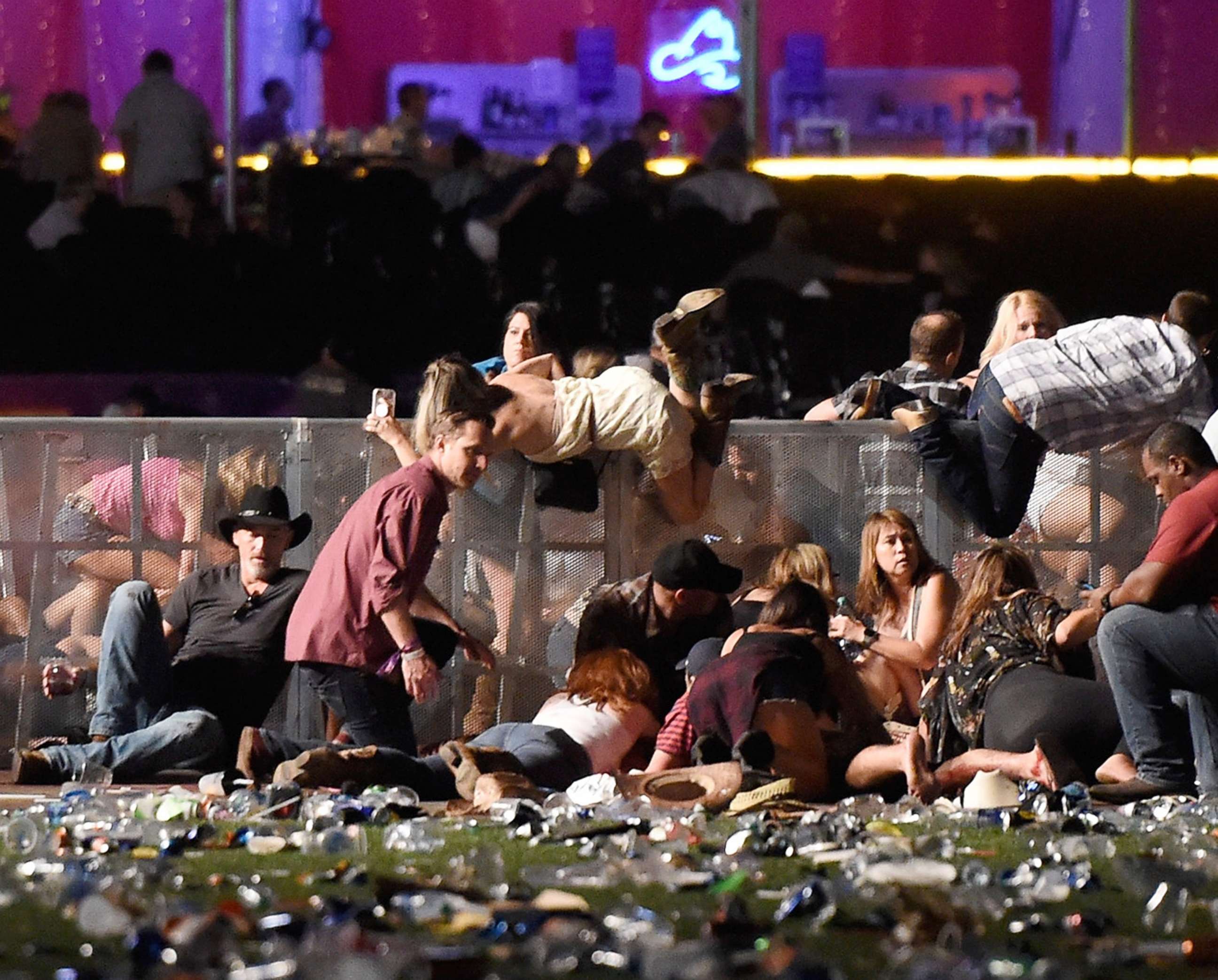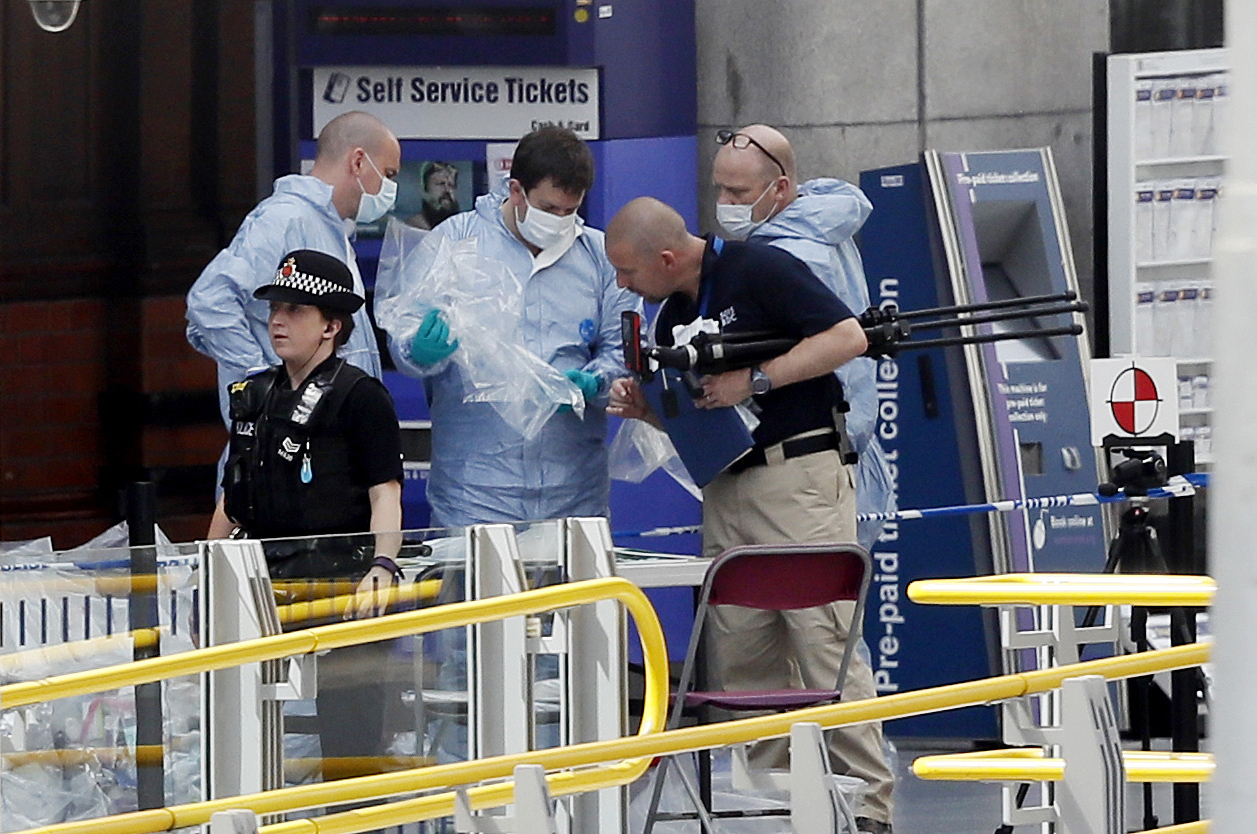Concerts, other soft targets remain vulnerable to attack, experts say
Shooting in Las Vegas now deadliest in U.S. history.
— -- Sunday's mass shooting in Las Vegas, which is now the deadliest in U.S. history, showcases once again the vulnerability of certain events.
In this case, a shooter opened fire from an elevated hotel room and targeted the crowd at an outdoor concert, killing at least 58 people and injuring 515.
"What [the shooter] did was he identified a gap in security and he exploited it," said former LAPD Officer Steve Gomez, who now works as a consultant for ABC News.
"It now shows the vulnerability that's out there," Gomez said on "Good Morning America."

The Las Vegas shooting comes over four months after another instance in which a concert was chosen as a target for a deadly attack. In May, there was a deadly blast outside the security barriers of an Ariana Grande concert in Manchester, England. The bombing killed 22 people and injured 250 others.
Experts told ABC News then that so-called soft targets offer terrorists practical and symbolic value.
John Cohen, a former counterterrorism coordinator for the Department of Homeland Security, listed concert venues, transportation hubs, hotels, shopping malls and sports venues as examples of soft targets.
"They are places that are difficult to harden because that would undermine the very reason they exist," said Cohen, who is now an ABC News consultant.
Officials said today they have found no connection between the Las Vegas shooting and any international terrorist group. Officials added that the suspect, 64-year-old Stephen Paddock, was not known to law enforcement.
Karen Greenberg, the director of the Center on National Security at Fordham University School of Law, told ABC News in May that an attack at a concert carries deep cultural significance.
"The symbolism of attacking Westerners who are enjoying themselves is what makes it an attractive target," said Greenberg, the author of "Rogue Justice: The Making of the Security State." "Terrorism is making civilians feel unsafe in their space."
Evolving protection techniques
Security precautions have been ramped up throughout much of the U.S. and Europe in recent years in light of other attacks, though Greenberg said that in focusing on more obvious, high-profile targets, law enforcement may have merely diverted the possibility of attack into other areas.
"We've made it so secure in places that are known targets that they've pushed attacks into more marginalized places," she said. "That's an interesting part of what's happened. Law enforcement has to secure not just the central places but recognize what that means in terms of where it pushes an attack."
Cohen noted that the evolving nature of how terrorist groups operate have placed soft targets in the sights of would-be terrorists who have not undergone military training.
"The tactics of groups like AQAP [al-Qaeda in the Arabian Peninsula] and ISIS have changed, where they have sought to inspire [followers] primarily through the internet and social media," Cohen said. "Attacking a soft target doesn't require a high degree of planning and support. You can essentially get your weapon, go to a public place and kill or injure as many people as you can."
He said that law enforcement officials are adapting by expanding the process by which they identify threatening individuals before an attack and determining "whether someone who comes to the attention of law enforcement poses a threat of carrying out one of these attacks."
"At the end of the day, it is extraordinarily difficult to secure every soft target within a jurisdiction, so our success in reducing these types of attacks will only come when we're better able to identify those within our communities who are potential attackers and prevent them from committing an act of violence," Cohen said.

Preparing the public
Eliminating the public's vulnerability at soft targets isn't necessarily possible, and Cohen notes how politicians and other officials regularly encourage people to continue to live their lives normally after an attack.
That kind of encouragement is a way of combating the second impact of a terrorist attack, which is the fear that terrorism instills in people in an effort to change their ways.
Greenberg said that attacks on soft targets have "succeeded in a lot of ways" in that they replace the public's sense of safety with one of fear.
"Since 9/11 in this country, since 7/7 in Britain, there's a heightened sense of fear about going about daily life," she said, referring to attacks in 2001 and 2005, respectively. "If one of the things they are attacking is peace of mind in our daily life, they can succeed in doing that. That's the goal."
Cohen said that people should "be aware but not afraid" of going to soft target areas, noting that they should be observant, should alert law enforcement if they spot anything suspicious and, because there may be increased security at large events like concerts, should plan accordingly.
Greenberg urges people to adapt and evolve with the changing times.
"Terrorism is a problem that we have to manage, not a problem we can completely eradicate in the foreseeable future, so every attack teaches us more ways to be vigilant," she said. "I don't think you have to trade off liberty for security. Good security allows people to live their lives."




